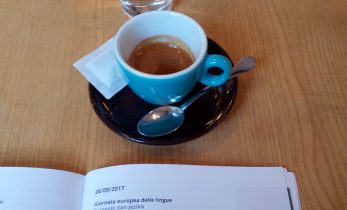Greater than 3 minutes, my friend!
How I Got Started in Literary Translation One translator's journey into a new world.
All my life, I’ve had a love of reading. When I was in school, I almost always had a book with me, whether it was a novel I had to read for English class or a selection from the library. I was the type to be so absorbed in a book, I would not realize it was time for class until the bell rang. Among my favorites were the works of Isaac Asimov and Arthur C. Clark but I also enjoyed the humor books of Erma Bombeck and Dave Barry. Later in my life, I read the works of H.G. Wells and Jules Verne as well as some classics, such as A Tale of Two Cities and the Sherlock Holmes stories. When I became a professional translator, it only made sense that I would be interested in becoming a literary translator. But where to start?
I had heard about a website called BabelCube (www.babelcube.com), a site that matches self-published authors with translators to expand the market for their books and where the translators would receive a percentage of the royalties. This seemed like a perfect way to dip my toe into the world of literary translation. As I perused their list of books in French to be translated into English, one novel caught my eye: the cover showed a young woman and what appeared to be a bull standing on its hind legs next to her. It was called La Quête de Lya, Tome 1: Le Sanctuaire, written by Tristan Valure. From what I could tell, it seemed to be a kind of fantasy novel (akin to Lord of the Rings or the works of Piers Anthony), so it seemed perfect for me. But it was not just a simple matter of picking out the book I wanted to do. I also had to convince the author with a short test translation.
The test translation was a short passage where a little girl, Siloé, meets the aforementioned bull-man (called a Taur in the English translation) and has a hard time pronouncing his name. There was an element in this excerpt where a strictly literal translation would not do, so I had to adjust it for English. When the Taur introduces himself, he tells her his name is “Chaak”. In the French version, Siloé misunderstands it as “Chaque” (which is the French word for “each”). I thought that this would not mean much to English readers, so in the English version, she misunderstands it as “Chalk”. I get the impression that this passage was chosen for the express purpose of gauging the creativity of the potential translator. Whatever the purpose, though, the author was willing to let me translate La Quête de Lya, Tome 1: The Sanctuaire into English as Lya’s Quest, Book 1: The Sanctuary.
As I translated this story, I had to think about who the characters were, their personalities, and how they would talk. For instance, Chaak was the stoic warrior type, so I considered warriors from other works I was familiar with, such as Worf from Star Trek and Teal’c from Stargate. The main feature that characterized them both was the formality of their speech, which I conveyed by not using contractions. Lenan, on the other hand, was definitely a Han Solo type: brash, snarky, and often referring to Lya as his jolie fleur (which I rendered “sweetie” in the English version). I had to make similar decisions regarding every character, from a rural farmer to the oldest and wisest of the varlans.
There were several challenges I had to face in translating this novel, particularly when there was no single English equivalent to the French. The biggest challenge, I think, occurred early on in the book. In order to secure transportation, Lya disguised herself as a man (even magically altering her voice) and enlisted the aid of a local farmer, who often referred to Lya as “your lordship”. However, as they traveled, the farmer turned against Lya and attacked her with a pitchfork. Lya cried out in pain before she could disguise her voice again and that is when the farmer realized that his passenger was a passengère (the feminine form of passenger). The problem is that English does not make this kind of distinction; a passenger is a passenger regardless of sex. After giving it some thought, I finally decided that in the English version, the farmer would realize that “his lordship” was “her ladyship”. Besides this, I also kept in contact with the author for clarification on certain passages.
So now, the novel is finished. I personally think that it came out fine for a first attempt, though I feel like I still have a lot to learn about literary translation. Fortunately, I can further hone these skills through the sequel, La Quête de Lya, Tome 2: La Reine de Salinar.
And now for the shameless plug: Lya’s Quest, Book 1: The Sanctuary is currently available at Amazon, Barnes & Noble, and other online booksellers.




